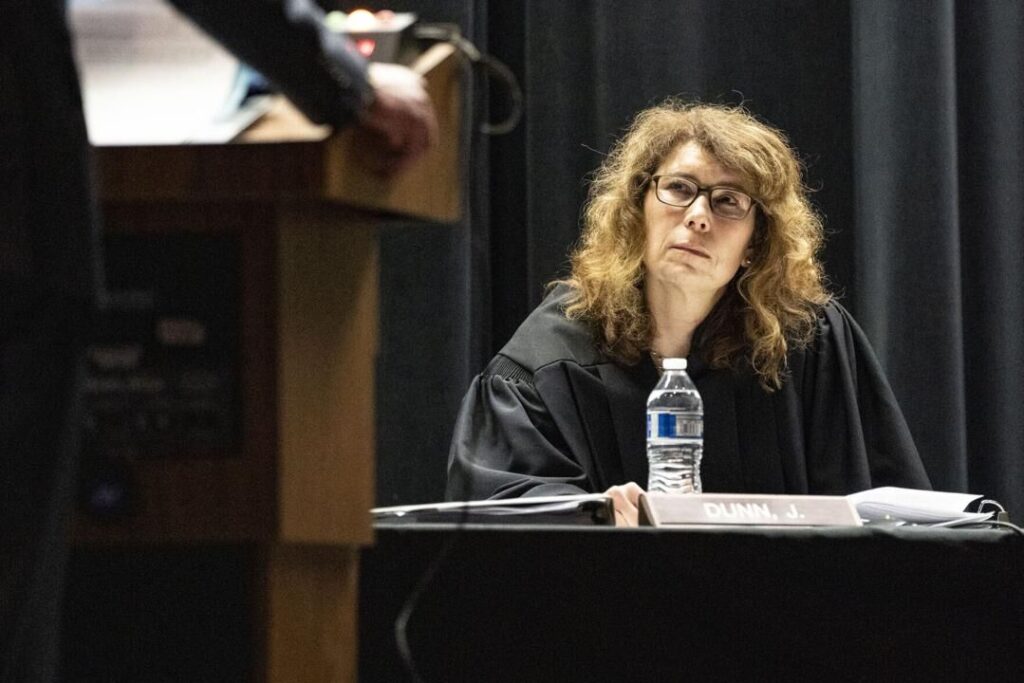10th Circuit moves out front of Colorado Supreme Court, answers injured-motorist question

Shortly after the Colorado Supreme Court agreed to address whether state law allows certain injured motorists to receive both workers’ compensation benefits and payments from their employer’s auto insurer, the federal appeals court based in Denver chose to answer the question without waiting for the Supreme Court’s interpretation.
By 2-1, a three-judge panel of the U.S. Court of Appeals for the 10th Circuit ruled that an insurance company could not bar a man who was injured by a hit-and-run driver from seeking compensation under his employer’s auto insurance policy, even though he also obtained workers’ comp.
Whether motorists who are injured on the job can claim workers’ comp and auto insurance payouts – or if they can only avail themselves of one source of payment – is an issue that has divided federal judges in Colorado who handle lawsuits against insurance companies. Earlier this year, one judge asked the state Supreme Court to offer its interpretation of what the law requires, and the court has agreed to intervene.
Case: Ward v. Acuity
Decided: June 22, 2023
Jurisdiction: U.S. District Court for Colorado
Ruling: 2-1
Judges: Robert E. Bacharach (author)
David M. Ebel
Timothy M. Tymkovich (dissent)
Background: Federal judge asks Colorado Supreme Court to address vehicle insurance question
While that case remains pending, the 10th Circuit considered the appeal of Kevin Ward, who was at his job for a roadside assistance company when another driver rear-ended him and fled. Ward suffered more than $76,000 in medical costs, lost wages and other damages.
He received benefits through workers’ compensation, but also sought payment from Acuity, which provided the auto insurance policy for his company. Ward contended that because his employer paid for uninsured motorist coverage – meaning Acuity would pay out in the event an uninsured motorist caused an accident – the insurer had an obligation to compensate him.
Acuity countered that Colorado’s Workers’ Compensation Act was the exclusive method to obtain compensation for job-related injuries, and its insurance policy supported that principle.
Last year, U.S. District Court Senior Judge Christine M. Arguello sided against Ward. She acknowledged the Colorado Supreme Court has interpreted the Workers’ Compensation Act before, but never in the precise scenario at hand: a third-party driver injuring a worker in a company vehicle, who then seeks workers’ comp benefits.
Nonetheless, she concluded that allowing Ward to pursue both forms of compensation for his injuries “would be illogical and undermine the public policy behind the WCA.”
Ward appealed to the 10th Circuit, and also requested that the appellate court exercise its power to ask the state Supreme Court to interpret whether Colorado law does, in fact, allow for both forms of compensation. Since Arguello’s decision, he argued, “the entire state of commercial uninsured motorist policies in Colorado has been turned on its head.”
“Workers’ comp benefits only offer a limited amount of benefit to the employee,” attorney Sandra L. Hagen told the 10th Circuit panel during oral arguments. “The uninsured motorist benefit does provide for all those damages that the injured worker would have against the third-party,” like pain and suffering.
Shortly before the panel rendered its decision, U.S. Magistrate Judge N. Reid Neureiter, in another injured-motorist case, agreed to send an almost-identical legal question to the Colorado Supreme Court. He cited Arguello’s order in Ward’s case, as well as a decision from U.S. District Court Judge Daniel D. Domenico that reached the opposite conclusion, as evidence the state’s highest court needed to clarify what drivers like Ward are entitled to.
The Supreme Court agreed on June 6 to take up the question and settle the legal dispute.
Meanwhile, the 10th Circuit panel in Ward’s case elected not to wait – nor did the parties ask it to. Instead, the panel decided on June 22 that Acuity’s policy clearly required it to cover injuries caused by the driver of an uninsured vehicle.
“That coverage isn’t affected by the exclusivity of remedies for workers’ compensation,” wrote Judge Robert E. Bacharach for himself and Senior Judge David M. Ebel.
Judge Timothy M. Tymkovich disagreed. He believed it would be “helpful and sensible” to forward the legal question to the state Supreme Court. Barring that, he believed the majority’s decision would subject insurance companies to new claims and prompt them to raise rates for policyholders.
“This decision undermines employers’ confidence in the workers’ compensation system as it allows an end-run around their anticipated liabilities and coverage for employee injuries,” he wrote.
Ward’s lawsuit now returns to the trial court. Simultaneously, the parties involved in the state Supreme Court case are scheduled to submit their arguments over the summer.
The case is Ward v. Acuity.













